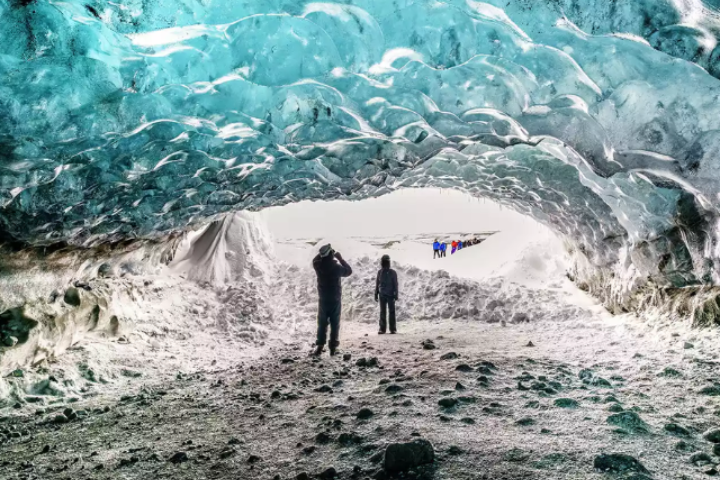A tragic incident has occurred at an ice cave in southern Iceland, where a tourist has lost their life and two others are missing following a collapse. On Sunday, August 25, a group of 25 tourists from various nationalities were exploring the Breiðamerkurjökull glacier when the ice cave suddenly caved in, according to local police force Lögreglan á Suðurlandi. Rescue operations have been underway, involving a large number of responders despite challenging conditions. While one person has been airlifted to Landspitali University Hospital in a stable condition, another was pronounced dead at the scene, with the search for he missing individuals postponed until Monday morning.
Tragic Ice Cave Collapse at Breidamerkurjökull Glacier
On Sunday, August 25, a tragic incident occurred at the Breidamerkurjökull glacier in southern Iceland when an ice cave collapsed, leading to the death of one tourist and leaving two others missing. According to local police force Lögreglan á Suðurlandi, a group of 25 tourists from various nationalities was visiting the site under the guidance of a tour operator when the accident happened. Rescue operations were initiated promptly, but challenging conditions, including the cave’s remote location, have hampered efforts. The search had to be postponed until the following morning, with authorities citing the hazardous nature of the terrain as a significant obstacle.
The collapse also resulted in serious injuries for one individual, who was airlifted to Landspitali University Hospital. The person is reported to be in stable condition. Other members of the group were unharmed and were taken to a mass aid center for support and assistance. This tragic event has cast a spotlight on the dangers of exploring ice caves, even with experienced guides, highlighting the unpredictable nature of these environments.
Rescuers Battle Difficult Conditions in Search Efforts
Rescue teams, consisting of 50 to 60 people, have been deployed to search for the missing tourists. However, the harsh and remote environment of the glacier has made these efforts extremely challenging. Local police chief Sveinn Kristján Rúnarsson noted that rescuers have been forced to work by hand, as the difficult terrain prevents the use of heavy machinery. The rescue operations have been further complicated by the precarious state of the remaining ice, which poses additional risks to the rescuers themselves.
Despite the challenging conditions, the rescue teams remain committed to finding the missing individuals. Chief Rúnarsson expressed confidence in the experience and judgment of the mountain guides who led the tour, noting that ice cave tours are a regular activity and usually safe under normal conditions. He emphasized that Iceland’s landscapes are constantly changing and unpredictable, acknowledging the inherent risks involved in exploring such dynamic natural environments. The incident underscores the delicate balance between adventure tourism and safety, raising questions about how best to manage and mitigate such risks in the future.




GIPHY App Key not set. Please check settings